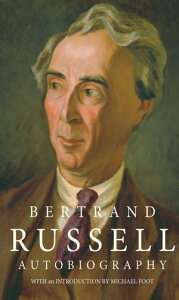Dear Bertrand Russell, 1969
Foreword to [Chapter 2:] Peace and Politics
'The whole point about H-bombs is that they must not be used in any circumstances.'
| |
|
|
By 1960 he had plunged into the campaign for mass resistance, addressed CND demonstrators in Trafalgar Square, and exhorted people to civil disobedience as the most effective method of mobilizing public opinion against nuclear war. The following year, aged eighty-nine, he led a mass sit-down outside the Ministry of Defence in Whitehall. He and his wife were sentenced to two months' imprisonment for their part in this and other protests (reduced to one week for reasons of health). In 1962, while the world held its breath during the Cuban crisis. Russell was mediating between Khrushchev and Kennedy. 'The solution to the crisis made the week one of the most worthwhile of my entire life', he stated. Later he was to play a similar role between Nehru and Chou En-lai over the Sino-Indian border dispute. He became increasingly involved in the problems faced by the 'third world', and by 1963 was devoting his energies to the cause for peace in Vietnam.
It was this period, the tension and alarm of the early 'sixties, the hectic days of demonstration and popular reaction against the nuclear peril and threat of war, that earned for Russell the world-wide following and acclaim of millions of ordinary people. As Herbert Gottschalk indicates so aptly in his short biography of Russell : 'Perhaps one day the world will be less interested in Bertrand Russell's philosophical works and in the details of his personal life, than in the splendid example of courage and human dignity he has given us.'
Russell's detractors have sought to revile his unyielding commitment to humanity as though he were trespassing in politics. Popular resistance is a term dreaded in certain quarters. but how much more unpardonable when a real live lord and philosopher to boot, becomes its chief advocate and begins knocking down all those prestigious pillars he is meant to uphold. The view of these particular critics is both false and absurd. If one takes the trouble to study Russell's life it becomes obvious at once that there is nothing incongruous in his stand against the bomb or the war in Vietnam. On the contrary, his so-called 'political irruptions' evolve from, and are the logical outcome of, his prime concern that all humanity should have a future; thus his support for the victims of apartheid tyranny in southern Africa and for that matter his disapproval of the Afghan war waged by Britain in 1878, which he terms 'my earliest political recollection'.
His latter-day campaigns, although contested on a far wider has ever stage, had their parallel years earlier when he vigorously agitated in favour of peace and conscientious objection against the fraudulence and horror of World War I. It is as well to recall the fierce denunciations and persecution suffered by Russell then. He was fined ##100 as author of a 'seditious' anti-war leaflet, abruptly dismissed from his lectureship at Cambridge's Trinity College, banned from the coast for fear that he might signal to enemy submarines, and finally gaoled for six months in 1918. Yet in due course, in cooler light. Russell's views which had shocked so many were accepted as sane, right-minded and even respectable.
Those who concede Bertrand Russell's early achievements, and yet inexplicably denounce his more recent commitments, might well reflect on the consistency with which he championed the cause of human survival. As with past controversies these criticsmust in time grow to respect the validity of his later strivings. Unless of course a nuclear holocaust interrupts this process and Bertrand Russell's life work comes to naught.

